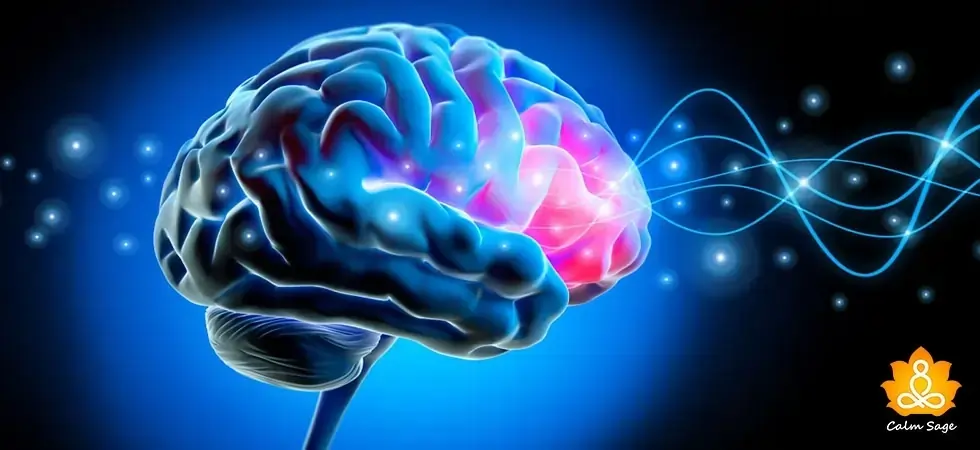The Psychology Of Memory: Formation, Duration, Types, And More

Do you still remember some of your childhood experiences, the day you got your first job, or the day you got engaged? Do you remember every inch of the day you are trying to remember right now? These short or long instances that you remember are known as memories.
According to psychology, memories are faculties wherein our brain stores, encodes, and retrieves information. You can consider memories similar to caches that our computer system stores for us.
In this blog, we will be learning about what memory is, how memories are formed, types of memory, stages of memory, and more.
What is Memory?
Memory creation is a psychological process wherein a person acquires, stores, retains, and retrieves information. Memory creation revolves around three major processes:
- encoding
- storage
- retrieval
According to psychology, humans have the ability to preserve and recover information at the same time. Memory is a flawless process that sometimes people can misremember or even forget facts or the whole memory. It happens mostly when the information is not properly encoded in the brain.
Memory-related problems like forgetting or misremembering can be describing a situation with wrong facts or completely forgetting someone’s birth date.
Serious problems related to memories can lead to serious mental health conditions like dementia and Alzheimer’s disease. This shows that constantly forgetting short or long memories can impact the ability to function properly or quality of life.
How Memories are Formed?
When our brain creates a memory, the information received is changed into a usable form. This process is referred to as encoding. After the information is encoded in our brains, it is stored in the form of memory for further use.
Psychologists believe that changes in memories are done by brain neurons. In today’s world, researchers are moving on with the understanding that the creation of memories is done through the connections between neurons.
When memories are created, they either strengthen the existing connection or lead to the development of a new connection. Changes between the connections are referred to as synapses. Synapses are related to retaining new information or learning new information.
The memory retrieval process helps us in bringing up the stored memories into our awareness. This shows that most of our moments lie in our awareness of the time.
How Long Do Memories Last and How Can we Organize Them?
1. Longevity of Memories
It is really important to understand how memories are formed to understand the length of memories. Usually, it depends on the time length, brief, and sensory information to understand how long memories last.
Research shows that the length of short-term memories lasts for 20 to 30 seconds and generally they are a bit longer. Short-term memories only consist of the information that people generally try to think about or focus on. Some memories come with the capability of staying for a longer period like days, months, or years. These memories are referred to as long-term memories which are drawn when we bring our consciousness down to thinking or focusing on the moment.
The fact is that our brain is capable of remembering good or bad memories. But, often we remember painful moments… ever wondered why??
Research shows that we generally remember painful memories because it increases biological arousal due to which we remember the painful memory for longer times.
2. Using Memory at the Right Time
From the above content, we understood that memories are encoded in our brains. Therefore, memories are retrieved first. There are various factors that influence the retrieving process which include the types of information, how information is retrieved, and how it is encoded in the present moment.
The process of information retrieval and encoding is not always perfect. That is why; most of the time we tend to forget the information during the examination that we learned last night. This process is known as the tip-of-the-tongue phenomenon or lethologica.
When the memory is retrieved and encoded properly, we remember all the facts and information properly; this is referred to as recalling the facts and information from the brain.
3. Organizing Memory for Future Use
The ability to retrieve and access information and facts from long-term memories helps us to interact with people, solve problems, and make decisions. In order to retrieve the right information, it is really important to organize memories.
Memory organization is done through the semantic network model. This model recommends that some triggers can activate memories.
For example, when we visit a place that we might have visited in childhood, activates long-term memories. Certain perfumes, aromas, or scents can also activate some powerful triggers and related memories in our conscious awareness.
What are the Types of Memory?
There are different models of memory suggested by psychologists. In 1968, Richard Atkinson and Richard Shiffrin proposed the theory of memory which outlines three stages or types of memory:
1. Sensory Memory
Sensory memory is the first stage of memory wherein sensory information occupied by the surrounding environment is stored for a shorter period of time. Sensory memory is shorter than a half-second of visual information and 3-4 seconds of auditory information.
2. Short-Term Memory
Short-term memory is also referred to as active memory. It is the memory of information that we are currently thinking about or aware of. According to psychology, when we pay attention to sensory memories, they generate information and convert them into short-term memory.
Research shows that short-term memories can be easily forgotten. The memories that stay longer with us are referred to as long-term memories. Short-term memories are kept for 20 to 30 seconds approx. the time length can be stretched with the help of memory remembering strategies like chunking.
Chunking means grouping related memories in small chunks or clusters. Short-term memory is also referred to as working memory which is used to store, organize, or manipulate information.
3. Long-Term Memory
Long-term memory refers to the storage of information for a longer term. This information is mostly stored for a longer time and can be used whenever we need it.
Some of the long-term memories are easy to access or recall, meanwhile some can be difficult to recall like remembering how we used to celebrate birthdays in our childhood or the first skill we learned during our first day at our job.
What Types of Mental Problems are Linked to Memory?
Below are some of the common mental health issues related to memory:
1. Memory Loss
Memory loss is one of the common mental health problems related to forgetfulness. Memory loss is the inability to remember things from the past. Forgetting can happen any day and it is one of the quite common problems to have. But, memory loss is something different as the person forgets some pieces of memories.
Memory loss is all about the inability to retain a record of everything that a person has learned or experienced in the past. There are various coping techniques for coping with memory loss such as adapting to memory aids like reminder notes or marking calendars.
2. Disorders of Memory
In some severe situations, memory can be permanently lost due to disorders like dementia. Dementia is a mental health condition wherein losses of cognitive functioning can be the result of various causes like minor forgetfulness. With the help of professionals, people can learn to cope with mild memory loss before it gets converted into a serious condition.
Alzheimer’s disease is also a part of a disorder of memory. It is a progressive neurological disorder that causes brain shrinking and brain cells to die. This disease is one of the most common causes of dementia. It can impact behavioral, thinking, and social skills which slowly impacts a person’s quality of life.
Other disorders related to memory also include types of amnesia. Amnesia means losing the capability to recall past related memories or retain new information or both. In some rare cases of amnesia, memory loss can be permanent but a few amnesia cases can also be solved on their own.
How to Improve Memory?
It really does not matter how great our memory is, we still tend to forget some facts or important information. But, don’t worry; this can be managed with the help of a few useful strategies to improve memory like:
- Writing or penning down important information or related facts
- Attaching the meaning to memory
- Repeating it constantly
- Testing out yourself or recalling the memories
- Taking a picture in your brain
Related Read: 9 Natural Ways to Improve Memory
How to Protect Our Memory?
In order to protect ourselves from memory loss, amnesia, or other memory disorders, it is really important to learn how to protect our memory so that we perform well and keep our cognitive health maintained even after crossing certain ages.
Below mentioned techniques or strategies can help you in protecting your memories:
- Avoid stressors try stress management techniques
- Avoid alcohol, drugs, and other toxins
- Be active and get enough exercises
- Stimulate your brain
- Eat healthily
- Develop a sense of self-efficacy
- Socialize regularly
- Get organized
- Sleep well
- manage chronic conditions
- Stay mentally active
I hope this blog helps you understand all you need to know about memory and how memory helps us. For more such content, connect with us on all social media platforms.
Thanks for reading!




















